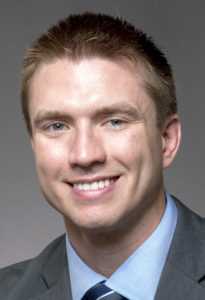I took a leave of absence in 2020, and it saved my life.
I serve as pastor of a church in Oklahoma, and it’s been a heck of a year. Even before the pandemic, we navigated painful staff changes and buried a beloved member whose generosity literally built the church and whose absence would be painful on many levels.

Jakob Topper
During the pandemic, we reduced our budget by 25%, grieved the departure of more staff, and buried more of our friends and family — all while navigating a civil rights movement, a hyper-partisan culture, and virtual worship. All of which contributed to members leaving our church.
In August 2020, I was on a Zoom call with pastors from across the nation when they began confessing their struggles with depression and suicidal ideation. I wrote about that experience for BNG and received a lot of encouraging feedback. A personnel chairperson from a Presbyterian church in Indiana told me they gave their pastor an extra week of vacation and even paid for him and his family to get away. A pastor in Nebraska told me his finance committee voted to start paying for him to see a therapist.
This is how we save lives and create healthy churches.
My article also created a ministry for me that I didn’t expect. Families of ministers who killed themselves reached out from across the nation and asked me to officiate Zoom memorial services. Most of these families already had a funeral, but the minister at the funeral said something unhelpful.
The first memorial service I officiated was for a 67-year-old Lutheran pastor. At the original funeral earlier that month, the officiant said that the deceased was “weak” and “unable to shoulder the burden of God’s call.” Naturally, the family wanted a do-over.
“I was debilitated by the fear that my church was dying on my watch and that I was failing God and the people I loved. I was stuck.”
I officiated six of these services and turned down a dozen more. Clergy mental health is a life-or-death matter.
I have an on-again, off-again relationship with depression and anxiety, and in the fall of 2020, I observed myself growing unwell. I was easily angered and frightened. Easily confused. I couldn’t walk away from difficult conversations after they concluded but would sit up at night replaying them over and over. I was debilitated by the fear that my church was dying on my watch and that I was failing God and the people I loved. I was stuck.
Then I officiated another Zoom memorial service for a pastor who killed himself. A few days before the service, I met with the family to learn about their loved one. They told beautiful stories about his sense of humor, wit and kind heart. They also shared their pain at how his illness hurt them as he grew sicker.
It was like looking into a mirror. I saw myself in that deceased pastor, and my blood ran cold. I could see where the road I walked led for me and for my family if I didn’t get help.
That afternoon I called my executive committee chair and asked for two weeks away. She agreed without hesitation.
The next Monday I told my clergy group my plan. Their support was extravagant as they helped me shape a step-by-step plan for my time away. As veteran pastors, they encouraged me to ask for four weeks away instead of only two. Many were in my shoes once upon a time, and they assured me I would need every day of the four weeks.
My clergy group offered to give me money to go to a retreat center if I couldn’t afford it, preach and perform funerals for me, and they even volunteered to speak with my executive committee on my behalf about the extra time away they wanted for me.
My executive committee didn’t falter when I asked for the full four weeks, and they gifted it without an ounce of bitterness. With only a few exceptions, my congregation also was overwhelmingly supportive of my decision to step away.
They may have saved my life.
I was depressed, not suicidal, but I saw that if I waited to take action until I was suicidal, then it might be too late.
“I was depressed, not suicidal, but I saw that if I waited to take action until I was suicidal, then it might be too late.”
Ministers: If you need help, please don’t let people who are sick themselves dissuade you from getting healthy. There is no action you can take that is too extreme, because your life is on the line — even if you don’t see it. Just last week I learned of yet another clergy person who took their own life.
You drew on deep reserves to carry you through the last year. Don’t assume that because the pandemic is easier to manage today that your mental health will automatically get better also. It might. It might not. It might even get worse. I know several ministers who are experiencing just this, and it’s perfectly normal. The deep reserves that carried you this far may be empty, and it’s time to fill yourself up again.
Congregants: I was encouraged this year to learn of churches practicing grace and mercy with their ministers. How we treat our ministers could be the difference between life and death. We will be held accountable for how we treat our ministers.
“We will be held accountable for how we treat our ministers.”
They are not gods. They’re just people under immense pressure. How we treat people when they are vulnerable tells us everything we need to know about our true Christian beliefs.
Church committees: Not every pastor can be honest with their church without being punished for it. I’ve heard horror stories this year too. Even if your pastor says they are fine, that doesn’t mean they are. Assume they are struggling, and find ways to support them. These suggestions are still relevant today. At worst, you will have been too gracious, and that’s no sin.
As the pandemic grows easier to manage, the pressure on pastors won’t go away. They’ll need your support now more than ever. Remember the story of Elijah in 1 Kings 19. It was after the struggle, when things returned to normal, that he was depressed and longed for death.
Jakob Topper serves as pastor of NorthHaven Baptist Church in Norman, Okla.
Related articles:
Too many pastors are falling on their own swords
Barna advice to pastors: Talk honestly about emotions and relationships


